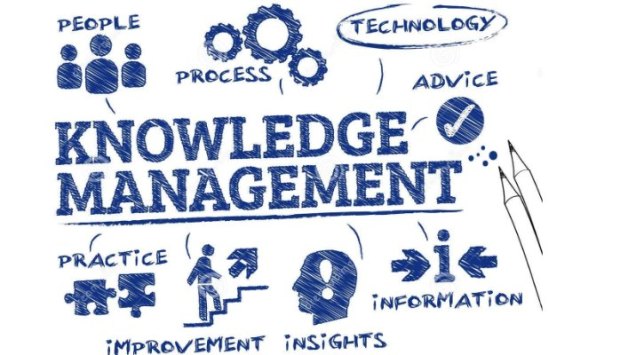
Knowledge Management System is an information system designed particularly to assist the sharing and integration of knowledge. It addresses to the living knowledge inside the organization. With knowledge management, an organization will benefit a lot from it. Knowledge management prevents staff from constantly reinventing the wheel, provides a baseline for progress measurement, reduces the burden on attrition of experts, makes visual thinking tangible, and manages large volumes of information effectively so that they can help employees serve clients better.
 Knowledge management also allows faster and better decision making. It is because relevant information is delivered at the time of need that a knowledge management environment can provide basis for making good decisions. Through collaboration, large numbers of ideas, diverse opinions and varied experiences are put on the table and made into use. The reuse of knowledge
Knowledge management also allows faster and better decision making. It is because relevant information is delivered at the time of need that a knowledge management environment can provide basis for making good decisions. Through collaboration, large numbers of ideas, diverse opinions and varied experiences are put on the table and made into use. The reuse of knowledge
 It also allows easy finding of relevant information and resources when faced with the need to respond to a customer, solve a problem analyze trends, asses markets, benchmarking against peers and other activities made in an organization. With knowledge management, tasks are performed efficiently because information is fast and easy to find when needed.
It also allows easy finding of relevant information and resources when faced with the need to respond to a customer, solve a problem analyze trends, asses markets, benchmarking against peers and other activities made in an organization. With knowledge management, tasks are performed efficiently because information is fast and easy to find when needed.
 Organizations also are able to avoid doing the same mistakes twice. Knowledge management allows sharing lessons learned, not only about successes. It also allows sharing failures so as to be avoided. To be able to do so, there must be a culture of trust, openness, and reward for willingness to talk about what was done wrong.
Organizations also are able to avoid doing the same mistakes twice. Knowledge management allows sharing lessons learned, not only about successes. It also allows sharing failures so as to be avoided. To be able to do so, there must be a culture of trust, openness, and reward for willingness to talk about what was done wrong.
Teams benefit from individual skills and knowledge of each member. The more complementary the expertise of each member, the greater the power of the team. So it is important to know what others know. It is helpful at a time of need. In addition, you learn from their experience and apply it to your current requirements.

Although knowledge management is very beneficial, there are still barriers in implementing it. Some of them are:
- general lack of time to share knowledge, and time to identify colleagues in need of specific knowledge
- apprehension of fear that sharing may reduce or jeopardise people’s job security
- dominance in sharing explicit over tacit knowledge such as know-how and experience that requires hands-on learning, observation, dialogue and interactive problem solving
- The reluctance to admit and thus learn from failure.
- Our IT systems, policies and tools are often not geared towards knowledge management.
 With the continuing influx of employees in an industry, the challenge will be how to pass the knowledge from one employee to another. “Knowledge is power but knowledge sharing is empowerment.” Sharing of knowledge to other employees and new entry is very beneficial to an organization. Selfishness can potentially damage the organization. The organization has to find a way to effectively implement Knowledge Management because the transfer of knowledge gives empowerment to the people so as to improve not only their personal standing but also the welfare of the organization.
With the continuing influx of employees in an industry, the challenge will be how to pass the knowledge from one employee to another. “Knowledge is power but knowledge sharing is empowerment.” Sharing of knowledge to other employees and new entry is very beneficial to an organization. Selfishness can potentially damage the organization. The organization has to find a way to effectively implement Knowledge Management because the transfer of knowledge gives empowerment to the people so as to improve not only their personal standing but also the welfare of the organization.
REFERENCES:
https://www.linkedin.com/pulse/20140811204044-2500783-15-knowledge-management-benefits
https://www2.deloitte.com/lu/en/pages/strategy/articles/benefits-knowledge-management.html
https://kmonadollaraday.wordpress.com/2011/05/16/organizational-barriers-to-knowledge-management/
http://www.stephendale.com/2011/10/26/36-knowledge-sharing-barriers/
https://jeggdeveza.wordpress.com/2015/03/06/knowledge-is-power-but-knowledge-sharing-is-empowerment/